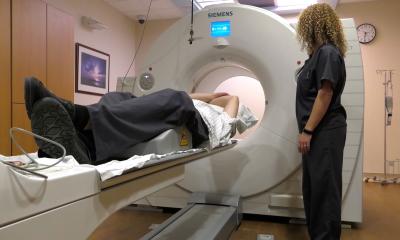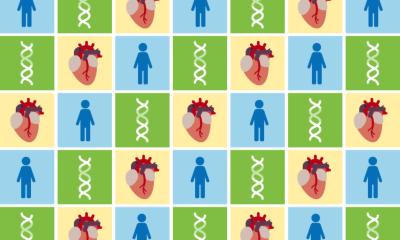Article • Research
Plumbing the depths of big data
Big Data has the potential to turn the approach to science and research on its head, according to leading expert Professor Viktor Mayer-Schönberger. In the future, he believes, researchers could adopt a position where they ‘start with the data and then come up with the question.’
Report: Mark Nicholls

‘They will be thinking about the hypothesis as the answer to the question,’ he explained. ‘That’s because big data captures all the data from a scenario, often data that we did not expect it to scoop up. That has immense potential, particularly within the world of medicine and scientific research. With Big Data, we can ask questions of it that we did not think of when we collected the data.’
This is significant, he pointed out, because scientists traditionally start with a hypothesis and then collect the data to answer the questions they have posed. Though as Professor of Internet Governance and Regulation at the Oxford Internet Institute, University of Oxford, he emphasised, ‘this requires us to ask the right question’.
Speaking to cardiologists at the opening lecture of the recent British Cardiovascular Society conference in Manchester, he posed the question ‘Big Data: a big deal for cardiology?’ outlining the role and impact big data can have in highlighting trends in disease and illness prediction and, consequently, how it may offer the opportunity to prevent it; he also warned that clinicians and researchers need to be responsible and trustworthy in how they use it. Big Data, he suggested, first had an impact in the sphere of public health with the discovery of the H1N1 virus in 2009 as its spread alarmed health authorities across the world because of the lack of vaccine. The Centre for Disease Control and Prevention (CDC) sought to constrain the spread and was able to monitor outbreaks but with a two-week delay.
However, by monitoring what people were searching for online from its five billion daily search requests, Google found a correlation to CDC data from what people were seeking. ‘The remarkable element in how this gave a prediction was about time,’ said Professor Mayer-Schönberger. ‘Google could do that in real time. This is precisely what big data is all about – about understanding the world through data.’
He said the world is ‘at the beginning of a wave of data’, pointing to data having grown 100-fold from 1987-2007 and is now doubling every 18-20 months. ‘In the year 2000, three-quarters of data was analogue, whereas today it is less than one percent,’ he said. ‘Within half a generation we have moved from the analogue world to the digital world. The promise of big data is that we can take a quantity of data and, with new quality, gain new insights. It is a paradigmatic change.’
Professor Mayer-Schönberger said big data moves medicine ‘beyond the average’ and helps clinicians with improved decision making, particularly when data is re-used in terms of personalised medicine. ‘Data re-use is key to the big data future, but there is a dark side,’ he warned his audience of cardiologists. ‘You have to understand that big data can only work if there is trust and responsibility among those who use data. Patients will only volunteer that valuable data to you if they can trust you. ‘In the future, big data is going to change the way you, as cardiologists, not only attend to your patients with individual diagnosis and suggestions for treatment, but how to discover and make those predictions.’
Profile:
Austrian Viktor Mayer-Schönberger, Professor of Internet Governance and Regulation at the Oxford Internet Institute, University of Oxford, England, founded Ikarus Software in 1986, which focuses on data security. Given his interest in ‘big data’, he researches the role of information in a networked economy. He has authored numerous articles and seven books including ‘Delete: The Virtue of Forgetting in the Digital Age’.
25.08.2016











